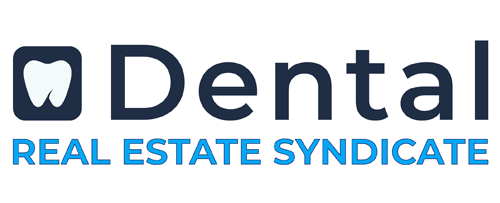Investing in commercial real estate offers a potentially lucrative path, but navigating this terrain on your own comes with its set of challenges. As the commercial real estate market evolves, more individuals are considering a do-it-yourself (DIY) approach to investing in commercial properties. This strategy can be rewarding, yet it’s essential to understand all considerations and challenges associated with DIY commercial real estate investing. Here, we explore key factors to help you determine if managing your own commercial real estate investments aligns with your financial goals and capabilities.
Accessing Capital for Commercial Real Estate
Initial Funding: Securing initial capital is a fundamental step in commercial real estate investments. Traditional commercial real estate financing through banks may require a substantial down payment, often 20% or more, with terms heavily influenced by your credit history and the type of property being purchased. Alternatively, creative financing options such as private investors, real estate investment groups, or crowdfunding platforms are becoming increasingly popular in the commercial property market.
Ongoing Financing: Consider your strategy for funding ongoing property-related expenses, including commercial property taxes, insurance, and potential renovations. A robust financial plan is crucial to sustain cash flow during periods of vacancy or unexpected commercial property expenses.
Building Management in DIY Commercial Real Estate
Self-Management vs. Professional Property Management: Deciding whether to manage your commercial property yourself or hire a commercial property management company is critical. Self-managing landlords can save on management fees but must be prepared to dedicate significant time, acquire management skills, and take on the full responsibilities of commercial property operations.
Time Commitment: Managing commercial real estate is time-intensive. Responsibilities include rent collection, maintenance coordination, and tenant relations. For those with other professional commitments, managing a commercial property might be daunting without the support of a property management team.
Tenant Acquisition and Retention
Marketing Your Commercial Property: Effective marketing strategies are essential to fill vacancies. Utilize digital marketing, commercial real estate platforms, and local networking to increase visibility and attract potential tenants.
Screening Tenants: Implement a thorough tenant screening process to ensure you select tenants who are financially stable and likely to maintain the quality of your property. This includes conducting credit checks, verifying income, and reviewing commercial leasing histories.
Dealing with Tenant Concerns:
- Effective Communication: Building strong communication channels with tenants helps in fostering a positive landlord-tenant relationship, crucial for long-term tenancy and property reputation.
- Conflict Resolution: Be equipped to handle disputes professionally to prevent tenant turnover and legal issues, ensuring smooth commercial property management.
Navigating Lease Agreements and Legalities
Understanding Commercial Lease Terms: Commercial leases, such as triple net leases, modified gross leases, or percentage leases, come with complex terms and legal stipulations. Familiarity with these terms is necessary to negotiate leases that protect your interests and fit your commercial property strategy.
Legal Considerations: Consulting with a commercial real estate attorney is advisable to ensure your lease agreements comply with local commercial real estate laws and regulations, safeguarding your investment from potential legal challenges.
Maintenance and Upkeep of Commercial Properties
Routine Maintenance: Regular maintenance is key to preserving the value of your property and satisfying tenants. This includes regular inspections, HVAC maintenance, and landscaping.
Emergency Repairs: Establish a reliable network of contractors who can respond promptly to emergencies, minimizing downtime and damage to your commercial property.
Selling Commercial Real Estate
Understanding Market Conditions: When preparing to sell, a deep understanding of local commercial real estate market conditions is crucial. Collaborate with experienced commercial real estate agents to set a competitive price and market the property effectively.
Preparation for Sale: Enhancing your property’s appeal through strategic improvements and repairs can significantly increase its market value, attracting serious buyers and yielding a higher sale price.
Economic and Regulatory Factors
Market Volatility: The commercial real estate market is sensitive to economic shifts. Monitoring economic indicators helps in making informed decisions that align with market trends.
Regulatory Changes: Stay updated on changes in commercial real estate regulations, zoning laws, and tax policies that could impact your property and investment strategy.
Conclusion
DIY commercial real estate investing demands a comprehensive understanding of market dynamics, financing, tenant management, property maintenance, and legal issues. If you are prepared to tackle these aspects, DIY investing in commercial properties can be a deeply rewarding and profitable venture. Equip yourself with the necessary knowledge and resources, and assess your ability to manage the demands of commercial real estate to ensure this investment strategy is suitable for you.

